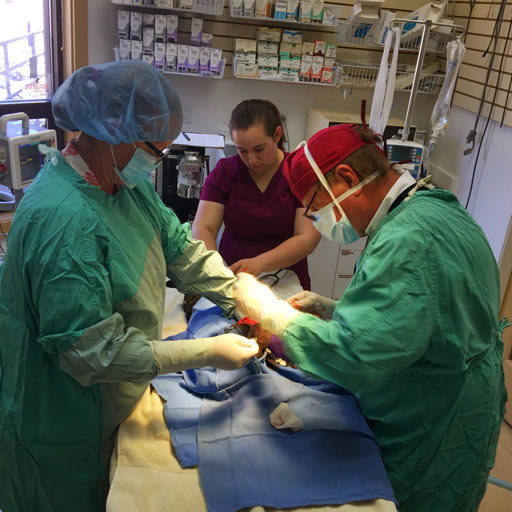
Local vet says late-night pet emergencies fault of pet owners
By Eric Valentine
Editor’s Note: In the Aug. 10 issue of Wood River Weekly, the ‘Pawsitive Problems’ article focused mainly on the systemic challenges the veterinary industry faces and how that has created a situation locally where a pet emergency late at night could mean a trip to Twin Falls or Boise, risking an animal’s health. Among the challenges, and in a nutshell, is a rise in pet ownership and first-time pet ownership along with a decline in numbers of vets and vet techs. It seems the article touched a nerve across the spectrum of stakeholders, including veterinarians. What follows is a summary of the factors causing and the solutions regarding the dilemma, and a look into why they’ve yet to take root.

Generosity
The Wood River Valley is known in part for its extreme wealth. Fortunately, that often translates into extremely generous donations to Valley nonprofits. Mountain Humane, the mega-shelter in Hailey, recently received a grant from a local, unnamed private foundation that will cover the salary expenses for a full-time, full-fledged veterinarian. However, despite using national recruiting services, Mountain Humane has yet to receive even one applicant.
Supply and Demand
As reported in Pawt 1, veterinary school graduate rates are in decline and veterinary field job turnover rates are not. So, in a lightly populated area like the Wood River Valley, which has an above-average love for dogs, the supply-demand problem gets exacerbated. Board president of Mountain Humane Sally Onetto said the inability to find a full-time vet serves as a perfect example of the matter. Onetto said the hope is to find a full-time vet so that the existing slate of part-time vets and vet techs could have the option of working after hours at some point.
“In an ideal world, we’d love to open the clinic on Saturdays,” said Onetto. “That day is not coming any time soon because of supply and demand. There’s just no end in sight. Vets are like gold dust.”
Irresponsible Owners
“An emergency after 10 p.m. is the owner’s irresponsibility,” says Dr. Karsten Fostvedt, veterinarian and owner of St. Francis Pet Clinic. “I don’t care if you’re Bruce Willis, you can’t expect emergency care will be available 24 hours a day, so why are you walking your dog off leash at midnight. You have to do better for your animals.”
It’d be easy to dismiss the comments of Fostvedt, who has been a Ketchum-based vet for over 30 years, as an example of the caregiver fatigue that by all appearances hits the industry hard. But Fostvedt says he still loves his work, and at 76 years of age, he still plans on going another five-plus years. At that time, he’ll hand over the business to his future daughter-in-law, Dr. Allani Delis, who currently works under him.
To be clear, St. Francis Pet Clinic does offer after-hours emergency care. But as of now, that ends at 10 p.m. when Fostvedt turns off his phone and calls it a day.
“I’m 76 years old. I’m not Superman,” Fostvedt said.
Fostvedt’s ‘after 10 p.m.’ stance holds firm, he says, even in the case of something like bloat or gastric torsion—a medical condition that affects dogs in which the stomach becomes overstretched and rotated by excessive gas content.
“We advise every client with a barrel-chested dog (like Great Danes and hounds) to avoid late-night meals and to exercise the dog before dinner, not after,” Fostvedt said. “Everyone should know what causes something like that and then not do it.”
Business Model
Onetto and Fostvedt both point out that any after-hours emergency care that is sustainable in terms of facility options and staffing supply may not be sustainable in terms of cost.
“It’s impossible to pay for their time,” Fostvedt said. “You have to figure $100 to $200 per hour per each member of the staff.”
According to Onetto and Fostvedt, for every one vet you should have ideally two vet techs, and with three medical staff in the building, having a receptionist helps, too. That’s four people to pay when treating what could be just one patient that day.


